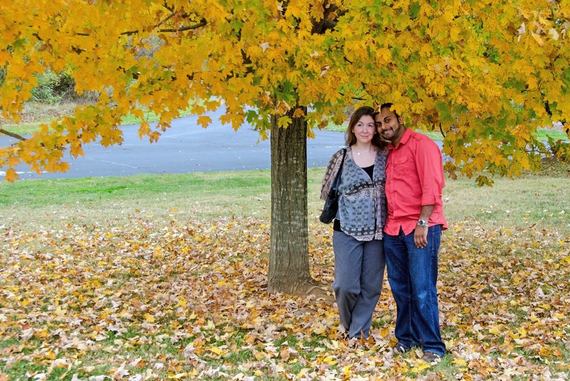By Jennifer J. Craig
Thanksgiving has always fascinated me more than other holidays. I especially appreciate that people from any religion can celebrate it. This freedom to express gratitude for the year's abundance with anyone in the U.S. creates an opportunity for true community with others -- something that is especially valuable in this age of physical isolation through social media.
I witnessed this gathering of faiths firsthand while I was growing up. Every year, my dad, a Protestant pastor in a small town, would plan a local interfaith Thanksgiving service with a Catholic priest and a Jewish rabbi. I enjoyed hearing them talk animatedly about the common values they shared and their mutual desire to bring community together on that special day.
This seems to be a theme in my life. My ancestor William Bradford participated in the first Thanksgiving in 1621, which brought Puritans and Native Americans together across faith boundaries to give thanks to a divine force for the new harvest. And now I am planning a unique interfaith Thanksgiving gathering with my fiancé Parth, who is Jain.

Similar to my dad, the priest, and the rabbi, our plans for Thanksgiving come back to celebrating our shared values and bringing people together. We are hosting a vegetarian potluck with friends from many different backgrounds and religions, sharing food and faiths to bring Thanksgiving back to its original meaning. In order to merge faith traditions, though, we find that two issues need to be discussed to make the day go smoothly.
The first issue is the Thanksgiving prayer. How is it possible for a Jain and a Christian to pray together? Jains do not believe in a creator god, and Christians do. Parth and I admitted that getting specific about how or to whom we pray is very personal -- and a never-ending conversation if we had to decide to do it one way or the other.
Furthermore, saying the other should pray the way we do seems synonymous with saying we should write "S" the same way or speak with the same accent. Instead, we decided that we would talk about, respect, and celebrate how the other one prays. This is in fact a major tenet of Jainism called anekantavad, or respect for everyone's point of view.
While talking about this, Parth and I realized that we both express gratitude in our prayers for the amazingly intricate design of the universe that brought us to where we are in life. For each of us, being grateful for what we've been given and letting people know our thankfulness is a huge part of how we live already. Our relationship had evolved by consciously finding ways to express gratitude for each other on a weekly basis. We've often found that disagreement arises when we forget to say what we're grateful for in the other person!
The second issue that could come up is, of course, the food at Thanksgiving dinner. Many of the foods in the traditional Thanksgiving dinner that I grew up with are not acceptable in Parth's Jain diet. Turkey, potatoes, onions, and garlic are all considered living beings in Jainism. In order to remain at peace with absolutely all beings, Jains do not eat them. This is ahimsa, or living a non-violent life.
This was not a long discussion, as I am vegetarian, too. I can sympathize with the compassion for all living beings, and my conscience is clear when I do not eat meat. I also feel much healthier, as my family has a history of heart disease. Moreover, while I was researching for this article I found out just how many turkeys are killed for this holiday dinner. Last year, more than 45 million turkeys were killed for U.S. Thanksgiving (3 million for Canadian Thanksgiving), according to both PETA and official websites about turkey sales. We're going to have a moment of compassionate silence to remember this during our potluck.
All in all, we're looking forward to celebrating a Thanksgiving that aligns with the true meaning of the holiday -- giving thanks for life's blessings across cultural and religious boundaries.